To stay well, get vaccinated and practice healthy habits
Cases of flu, COVID-19, and RSV continue to spread in our communities. Here’s how to protect yourself and others.
Staying active, eating well, getting enough sleep — and being up to date on your vaccinations — can help keep you healthy.
It’s common for seasonal viruses to surge in the winter. If you find yourself getting sick every winter, you’re not alone.
Hospitalizations due to the flu, COVID-19, and RSV (respiratory syncytial virus) are on the rise. And, it’s possible to get sick with more than one virus at the same time.
Protect yourself and your family by getting vaccinated.
It’s important to get all vaccines recommended by your doctor. Flu shots can reduce flu-related doctor visits by 60%, according to the Centers for Disease Control and Prevention.
“Seasonal vaccination gives you the best protection against the flu. It also can make your flu symptoms less severe if you become infected,” said Craig Robbins, MD, physician co-lead for Kaiser Permanente’s national vaccination program.
Where to get vaccinated
Getting a vaccine is quick and easy — and not just for the flu.
“It’s also important to get the updated COVID-19 vaccine, even if you’ve been vaccinated for COVID-19 before,” said Dr. Robbins. “The updated COVID-19 vaccine provides the best protection against severe illness and hospitalization from more recent COVID-19 strains.”
Flu shots and COVID-19 vaccinations are available to Kaiser Permanente members at no cost at Kaiser Permanente facilities by visiting kp.org/flu and kp.org/covidvaccine.
Other ways to protect yourself and others
- Wash your hands with soap and water for 20 seconds. It’s one of the best ways to prevent spreading germs and keep yourself and those around you safe.
- Strengthen your immune system by sleeping 7 to 8 hours a day, eating a healthy diet, and getting your body moving.
Learn more about respiratory infections and how to get care on kp.org.
-
Social Share
- Share To Stay Well, Get Vaccinated and Practice Healthy Habits on Pinterest
- Share To Stay Well, Get Vaccinated and Practice Healthy Habits on LinkedIn
- Share To Stay Well, Get Vaccinated and Practice Healthy Habits on Twitter
- Share To Stay Well, Get Vaccinated and Practice Healthy Habits on Facebook
- Print To Stay Well, Get Vaccinated and Practice Healthy Habits
- Email To Stay Well, Get Vaccinated and Practice Healthy Habits

March 7, 2025
Kaiser Permanente in Hawaii cures 1,000th patient with hepatitis C
The milestone highlights its Viral Hepatitis Clinic's crucial role in addressing …

January 13, 2025
How to prevent cervical cancer
Cervical cancer is highly preventable. HPV vaccination and regular screenings …

October 18, 2024
Hidden hazards of Halloween
Expert tips to ensure your little ghosts and goblins stay safe this Halloween, …

December 21, 2023
It’s not too late to get your flu shot
Flu season often continues into early spring. Here are 5 reasons you should …

October 17, 2023
Flu protection for all that is you
Getting vaccinated is a safe and effective way to avoid getting sick.

October 12, 2023
How to clean and disinfect your home
These simple steps can keep infectious diseases from spreading in your …

October 10, 2023
What to know about COVID-19 vaccines
The updated vaccine is recommended for everyone 6 months and older.

August 15, 2023
'Hot-spot' strategy gets more Californians vaccinated
A new location-based vaccine strategy by Kaiser Permanente was successful …

July 21, 2023
Thankful for every day after HPV-related cancer diagnosis
Michael West shares his incredible journey from diagnosis to treatment …

March 29, 2023
Hello spring and seasonal allergies
Allergies affect over 50 million Americans each year. We share tips to …
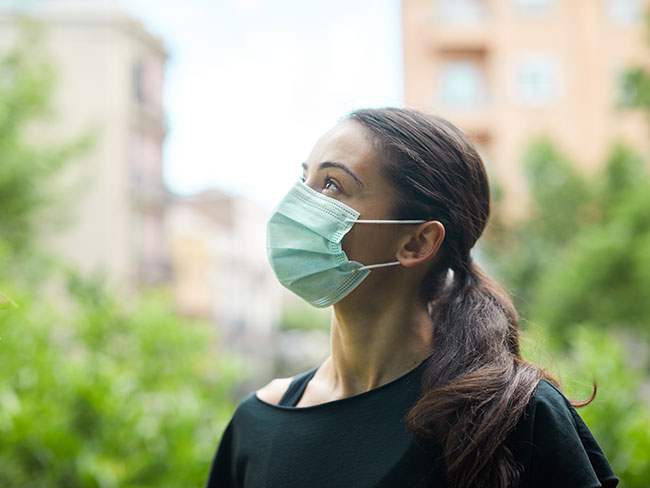
March 16, 2023
Marking the COVID-19 pandemic’s third year
Learning from this historic health crisis will better prepare us for future …
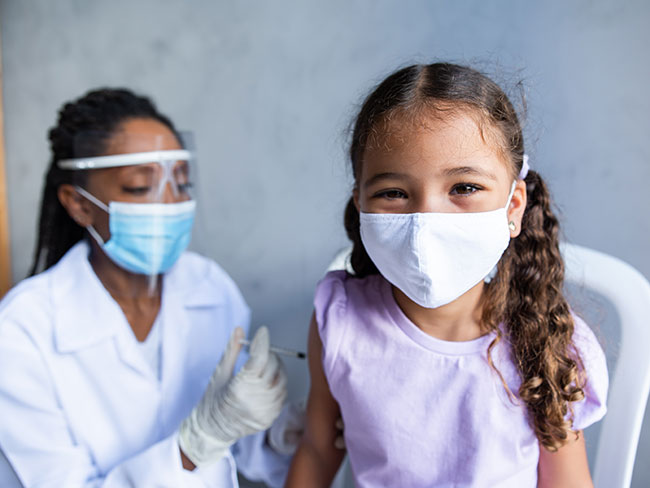
February 27, 2023
Teaching flu a lesson
School-based flu vaccination clinics made it safe and convenient for students …

January 27, 2023
Timely flu vaccinations at community events
Proactive flu prevention outreach helped community members in Downey, California …

June 27, 2022
Kids 6 months to 17 years can receive COVID-19 vaccination
Providing safe and effective vaccinations to children is an important step …
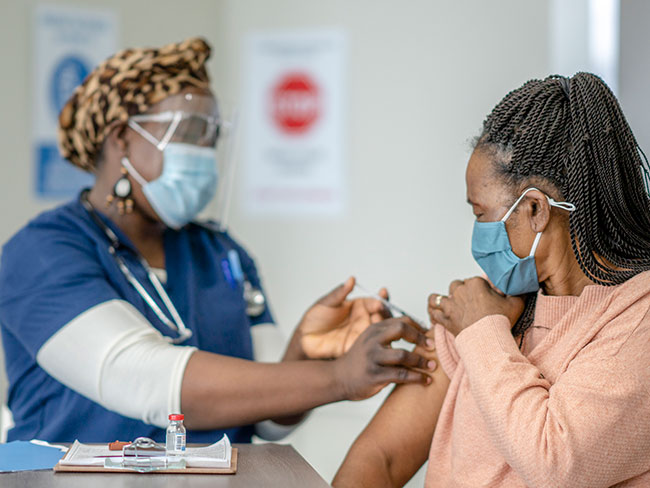
December 6, 2021
Faith leaders use trusted voices to encourage vaccination
Grants expand support for faith-based organizations working to protect …

November 30, 2021
Bechara Choucair, MD, returns as chief health officer
After serving on the White House COVID-19 response team, Bechara Choucair, …
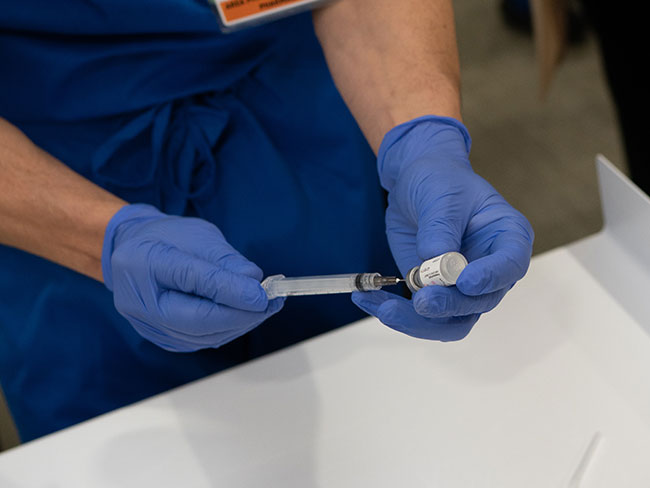
October 12, 2021
Beyond advocacy: Requiring vaccination to stop COVID-19
Kaiser Permanente and other leading companies are mandating COVID-19 shots …

October 1, 2021
Our support of California’s student vaccination requirement
A statement from Kaiser Permanente chair and chief executive officer Greg …
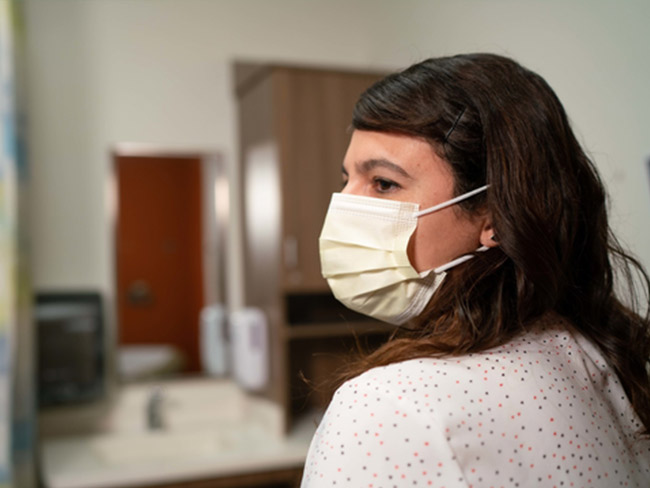
April 28, 2021
COVID-19 outcomes are more severe for people of color
Kaiser Permanente research underscores the importance of culturally appropriate …
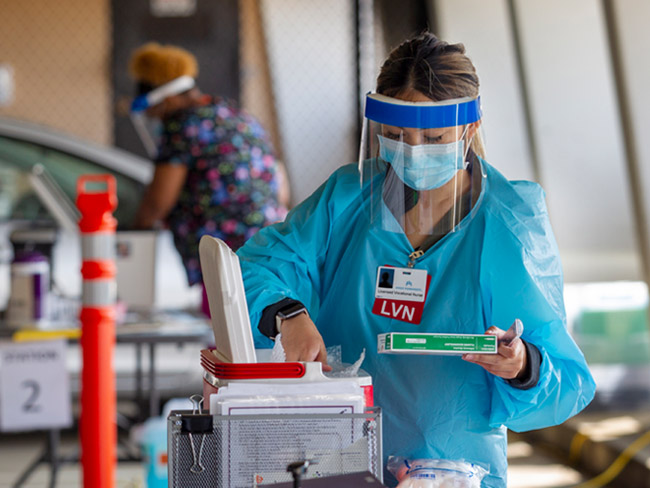
March 23, 2021
Vaccine Equity Toolkit will help address equitable access
As vaccines bring hope to end the pandemic, Kaiser Permanente’s toolkit …
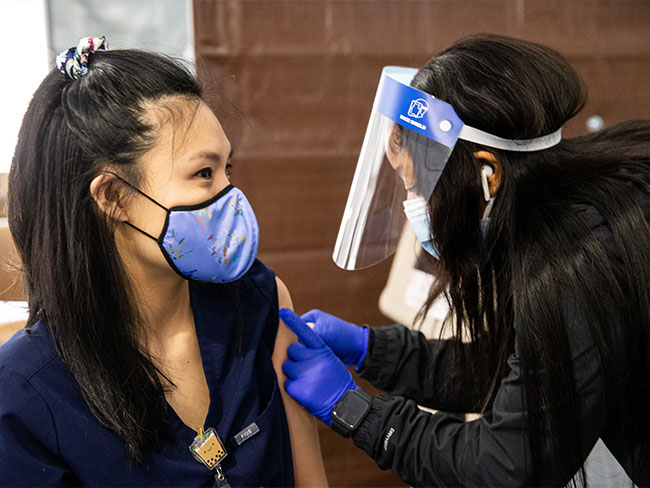
March 11, 2021
Our support of the American Rescue Plan Act
A statement from CEO Greg A. Adams about the American Rescue Plan Act.

January 15, 2021
The fastest path to care
Available 24/7 with no appointment, e-visits offer Kaiser Permanente members …